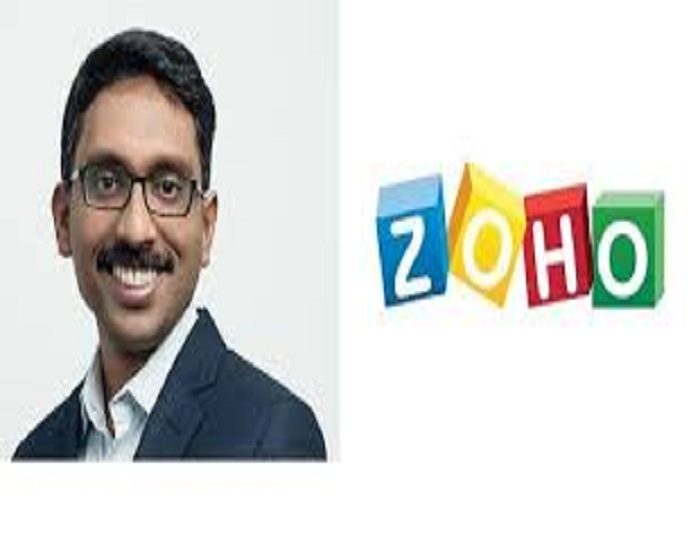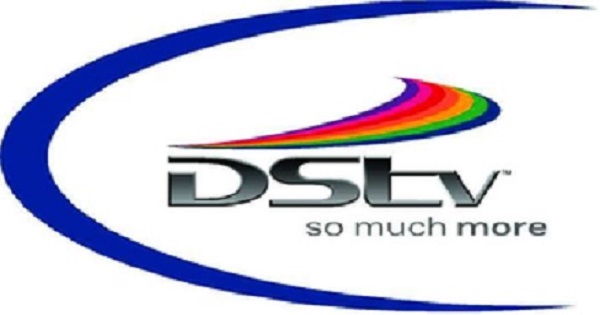Broadcasting
It’s Time for the Corporate Sector to Rethink Business Capital

By Hyther Nizam, President – MEA, Zoho Corp.
The vast majority of people associate capital with financial wealth. When economists discuss capital, they refer to the assets that enable improved productivity, which should lead to a higher standard of living. However, when corporate capital is defined purely in terms of monetary wealth, market capitalisation or sales, it invalidates other larger, longer-term goals and they tend to be ignored, or are eliminated. While numbers are significant, they are not the most important component of capital for a company’s long-term survival.

The real concept of capital encompasses far more than just a financial metric. Apart from financial wealth, business capital is about developing competencies and deep know-how, establishing roots and nurturing a shared culture, enhancing individual and community livelihoods, and making an impact at the local, regional, and national levels. The method allows businesses to see themselves as more than just profit generators, and to see themselves as part of a much larger picture.
Building skills and capabilities
In order to take this holistic approach, organisations should focus on building capabilities through continuous investment in R&D and skills development. Developing knowledge capital has to take precedence over getting product out to market as quickly as possible. While this might initially mean sacrificing on budgets for marketing and other secondary functions, the benefits become clearer in the long term. Additionally, building knowledge capital shows your clients that you are in it for the long haul, which engenders brand credibility and helps forge stronger connections with customers.
Building this strong knowledge base goes hand-in-hand with talent nurturing. But when looking for talent, most businesses still restrict themselves to a highly selective talent pool based on credentials and educational qualifications. Unfortunately, credentials do not always attest to a person’s true potential and capabilities.
Alternatively, when you remove formal education from your hiring requirements, you have access to a huge pool of untapped talent that’s waiting for an opportunity to be trained and developed. Taking in potential talent and upskilling them in-house with industry-ready expertise further contributes to stronger knowledge capital. Such initiatives, additionally, make it easier to evolve and pivot when necessary.
Enriching employees’ lives
It’s also important for businesses to remember that their employees are more than the output they produce during working hours. For employees to be their best version of themselves at work, organisations need to foster a sense of belonging that combines material and spiritual well-being. Good pay, perks, promotions, and in-office recreation centres may look good on paper, but they mean little if they aren’t combined with a sense of freedom, trust, patience, and acceptance. Employees also need to feel free to make mistakes and learn from them without being unduly penalised.
Most businesses, however, approach this idea of building an empowered human capital backward. They start with the goal of maintaining a low attrition rate and then try to analyse why employees leave. Rather, it’s necessary for businesses to ask themselves “what have we done to deserve the loyalty and commitment of our employees?” This reverses the focus from “why do people leave us?” to “why should they stay with us?”, and urges companies to be grateful and appreciative of employees who choose to stick with them over the years.
Developing a shared culture deep-rooted in a core set of principles
A company’s culture is its unique personality, which manifests in the form of strongly-held values, business ethics, and a common sense of purpose. Culture adds meaning to why businesses do what they do and also guides how they do it. Culture gives a clear, collective goal for teams to work towards, spiritedly. This cannot be achieved through maximising profits or developing quick win strategies; they seldom motivate people or encourage them to bond.
Ultimately, getting this right means fostering an awareness that no business is larger than life, and thinking more from the angle of how a business fits into the bigger picture. This helps ensure that the business understands the role it plays in society and how it can be a community asset as it balances impact with growth.
Focusing on long term capital with skills development
Rather than focusing on immediate returns, organisations should recognize the value of building long-term capital that encompasses all the above. Business leaders that understand the business continuity and value that comes with skill development, culture, and know-how building will prioritise laying down these fundamentals of durability. This in turn will enable companies to persevere for longer periods of time, build a positive legacy, and as a result, contribute more to community progress and socio-economic upliftment.
Broadcasting
DStv Loses 1.4m South African Subscribers in Two Years

DStv, owned by MultiChoice, has lost far more subscribers in South Africa in the last two years than it appears from its reporting, according to Moneyweb.

According to the group, its “active” subscriber base declined from eight million on 31 March 2023 to seven million on 31 March 2025.
The drop in subscribers accelerated from 400 000 in the prior year to 600 000 last year.
However, this is only the specific number of active customers on that date.
DStv is very aggressive in ensuring that customers are active at the end of March each year (and at the end of September) given its financial reporting.
It introduced a new metric in FY21 which measures customers who had an active subscription at any point within the 90 days before the reporting date.
On this measure, its base dropped from 9.3 million in March 2023 to 7.9 million in March 2025, equal to 1.4 million.
The declines are across the board in its premium, mid-market and mass market segment, but the first two are leading with drops of 22% to 23% each.
The premium segment includes the Premium and Compact Plus packages, while mid-market comprises its Compact and Commercial packages.
The mass market segment has seen an 11% decrease in subscribers over the last two years.
In its rest of Africa business, the decline on the 90-day active metric is even worse. Here, the number of subscribers has dropped from 14.2 million in March 2023 to 10.7 million in March 2025.
This is a 25% decline, or 3.5 million subscribers. In this business, the premium segment is flat over two years, mid-market is down 14% and mass market by 29%.
Its business in Nigeria continues to battle currency devaluation, with its share of subscription revenue across the African operations dropping from 44% in FY23 to just 26% in FY25.
In rand terms, subscription revenue in Nigeria is down from R9.1 billion two years ago to R3.5 billion now.
The group took a R2.8 billion foreign exchange hit in Nigeria, with the naira depreciating 44%.
This, coupled with other forex impacts, saw its R1.3 billion reported trading profit in Africa swing to a R800 million loss.
Somehow it tries to illustrate a R2.3 billion “organic” profit, before the currency impacts.
Price increases (averages of 5.6% in 2023 and 5.7% in 2024) were not enough to offset the subscriber declines.
Subscription revenue in South Africa has declined from R27.3 billion in FY23 to R25.7 billion in the year to end March 2025.
Not only is the macro-economic environment weighing on consumers, it also highlights the impact of “piracy, streaming options and social media”.
Broadcasting
How to Turbo-charge Your Productivity as a Backend Engineer!

By Seye Folajimi
I start each day with one goal: to be as efficient and focused as possible. A developer’s life is full of interruptions, and without good time management, it’s easy to fall behind. As a Backend Engineer at Moniepoint, I’ve assembled the toolkit that helps me and I believe by extension any technical professional to deliver results consistently.

In this feature article, I’ll share the tools and habits that have practically multiplied my productivity and sharpened my focus on the job.
My Daily Toolbox
I rely on a handful of core tools every day. IntelliJ IDEA and Visual Studio Code are my primary editors: IntelliJ for heavy backend work (it’s packed with features) and VS Code for quick edits or scripting. When testing APIs or debugging endpoints, Postman is indispensable for sending requests and saving environments. For spotting code or configuration differences, I often paste text into Diffchecker.com and let it highlight the changes. And for database work, MySQL Workbench provides a visual SQL editor and schema designer that saves me a ton of time. Dear professional, using the right tool for each task means fewer context switches and a smoother workflow.
Productivity Strategies That Power My Workflow
Beyond raw tools, I use structured habits to stay on track. I break the day into focused blocks and assign each chunk to an activity (coding, reviews, meetings, etc.). This time-blocking approach improves focus by letting me give my full attention to one task at a time. I also apply the Eisenhower Matrix to categorize tasks by urgency and importance; this ensures I tackle critical work first. Rather than flitting between emails, calls, and code, I batch similar tasks into dedicated slots. Some of my core techniques include:
Time Blocking: I assign specific blocks of time for coding, meetings, code reviews, and so on. This means I can dive deep into one task without switching contexts. (For example, I often use 25-minute sprints followed by a 5-minute break – the classic Pomodoro cycle – to keep my mind sharp.)
Prioritization (Eisenhower Matrix): Each morning I list my tasks and sort them by urgency vs importance. The Matrix helps me “do first” what truly matters and “delegate or drop” low-value items. This clarity prevents me from getting bogged down by busywork.
Automation: Whenever I catch myself doing something repetitive, I stop and ask, “Can I script this?” Whether it’s a shell script for routine commands or a CI/CD pipeline for deployment, automation frees up hours. Reducing manual repetition lets me focus on more critical work. Even simple automations (backups, report generation, test harnesses) add up to big time savings.
Notification Discipline: I turn off unnecessary notifications and check email/Slack only at scheduled times. By minimizing interruptions, I stay “in the zone” longer and preserve my cognitive energy.
Building My Custom Focus Extension: The Hot Gate
I even took matters into my own hands by coding a productivity tool from scratch, i called it “THE HOT GATE” .
The “Hot Gate” refers to the ancient Battle of Thermopylae in 480 BCE, a famous event in Greek history. It’s where King Leonidas of Sparta and a small force of Greeks (famously 300 Spartans) held off the vast Persian army of Xerxes I for several days.
The extension:
Blocks distracting websites during deep work sessions.
Organizes tabs to reduce clutter.
Unlocks distractions only during breaks.
I built it using JavaScript and browser APIs. One limitation: I can still turn it off manually. I’m considering adding a restriction to prevent that—but it’s still a local extension. Maybe someday I’ll publish it.
Breaks and Rewards
I’ve learned that smart breaks actually boost productivity. I take 2–4 minute strolls every hour, prompted by reminders from our infrastructure team. It’s refreshing and clears my head.
After big wins (like deploying a major feature or solving a tough bug), I reward myself—whether it’s a nice meal, a movie night, or just a chat with friends. These rewards keep me motivated and prevent burnout.
Wrapping Up
In my experience, combining the right tools with disciplined habits is what unlocks consistent high performance.
I’m constantly refining my setup—automating repetitive tasks, organizing my schedule better, and building systems that help me stay in the zone.
At Moniepoint and beyond, delivering quickly and reliably takes more than just code. It takes systems thinking, self-awareness, and the discipline to evolve your workflow over time.
By adopting these practices, I’ve become both more productive and more fulfilled. And I’m hoping the story is same or at least similar for you after reading this.
Seye Folajimi is a backend engineer with Africa’s fastest growing financial institution, Moniepoint Inc.
Broadcasting
African Craftsmanship Takes Center Stage at TALES 2025 in London

This summer, London’s West End will transform into a vibrant showcase of African excellence as TALES (The African Lifestyle Experience) returns with its most ambitious edition yet: Reimagine 2025.

A Luxury Cultural Experience
Hosted at Luxury Promise, 28 Cavendish Square, just off Oxford Street, the event will run from July 25 to August 3, 2025, offering ten days of curated experiences, fashion-forward storytelling, and cultural immersion.
With over 70 curated brands spanning fashion, beauty, art, music, and home décor, TALES 2025 will spotlight Africa’s brightest creative talents and celebrate craftsmanship across the diaspora.
Key Highlights
- Exclusive African Fashion & Craftsmanship Discover one-of-a-kind pieces, from bold fashion in traditional textiles like Aso Oke, Adinkra, and Bantu, to luxury handmade beauty products and bespoke interiors.
- Fireside Chats with Industry Icons Intimate conversations with trailblazers and tastemakers exploring the future of African entrepreneurship, culture, and design.
- Kidpreneur x The Veteran A standout feature returns, bridging generations of innovation by spotlighting rising Gen Z entrepreneurs alongside industry legends like Gloria Ije Anyaehie-Coker, founder of GIA1 Fashion.
- Exclusive Travel Offer with Air Peace TALES is partnering with Air Peace to offer a 15% flight base fare discount for brands and attendees flying to London, strengthening connections within the diaspora.
A Global Movement Powered by Bellafricana
Backed by Bellafricana, a platform empowering African creative entrepreneurs across 18+ countries, TALES champions authentic African stories, craftsmanship, and visibility on the world stage.
Supported by the City of Westminster
The City of Westminster proudly supports TALES 2025, reinforcing London’s commitment to diversity, innovation, and inclusive cultural celebration. The event will be featured across Oxford Street’s Instagram and website, ensuring maximum visibility.
Why It Matters
Following the runaway success of TALES 2024, which featured 40 brands and attracted a global audience, Reimagine 2025 raises the bar. As London’s fashion and cultural scene increasingly embraces diversity and authenticity, TALES 2025 is a timely and necessary celebration of African brilliance.
Whether you’re a fashion enthusiast, culture lover, or global tastemaker, TALES 2025 is where Africa’s future-forward creativity meets London’s cultural heartbeat.
Event Details
Venue: Luxury Promise, The Corner Showroom, 28 Cavendish Square, London W1G 0DB 


 News2 days ago
News2 days agoLasaco Assurance to Invest in Technologies, Systems to Deliver Value to Clients

 E-Financial2 days ago
E-Financial2 days agoNIBSS National Payment Stack to Transform Nigerian Instant Payments

 E-Financial2 days ago
E-Financial2 days agoCBN Reaffirms Banking Sector Resilience as Forbearance Ends

 News1 day ago
News1 day agoPalmPay, Glo Launch “Recharge and Win Bonanza 2” with Exciting Prizes

 General News1 day ago
General News1 day agoBridging the Digital Divide: Over 700 Young Africans Empowered by Paradigm Initiative

 General News1 day ago
General News1 day agoIHS Nigeria, United Nations Global Compact Host High-Level Dialogue on Sustainability and Greener Business Practices in Nigeria

 News1 day ago
News1 day agoHow and Why N210 Trillion is Missing in NNPCL – CFO

 General News2 days ago
General News2 days agoMoniepoint Demonstrates Commitment to Nurturing Africa’s Future Leaders






















